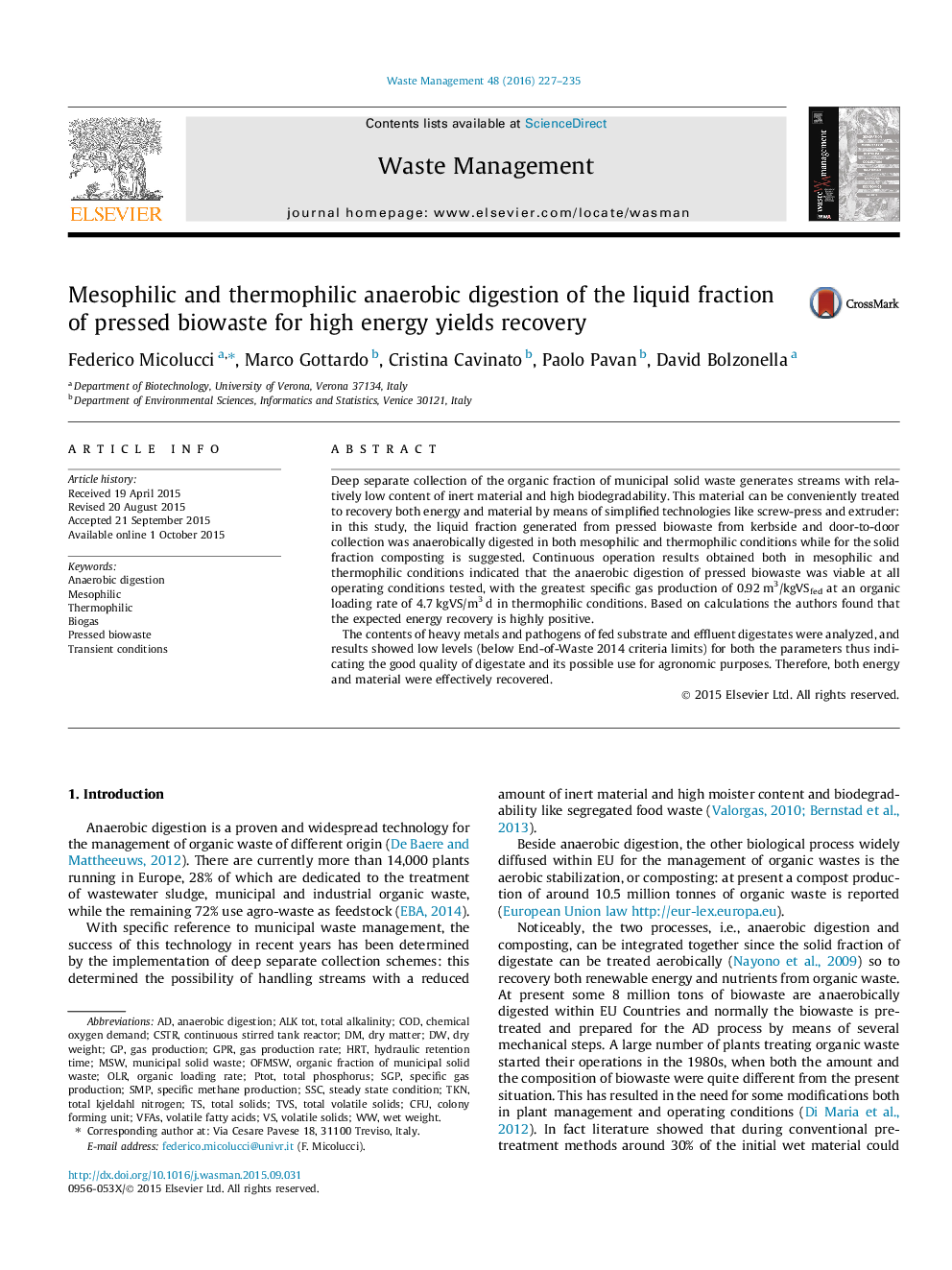| Article ID | Journal | Published Year | Pages | File Type |
|---|---|---|---|---|
| 6354117 | Waste Management | 2016 | 9 Pages |
â¢Truly new and advanced low energy demand pre-treatment process of biowaste.â¢Anaerobic digestion of highly biodegradable liquid biowaste from kerbside collection.â¢Transient meso-thermophilic conditions by organic loading rate perturbations tested.â¢Heavy metals of fed substrate and effluent digestates below end of waste limits.â¢High biogas yields, good quality of digestates useable for agronomic purposes.
Deep separate collection of the organic fraction of municipal solid waste generates streams with relatively low content of inert material and high biodegradability. This material can be conveniently treated to recovery both energy and material by means of simplified technologies like screw-press and extruder: in this study, the liquid fraction generated from pressed biowaste from kerbside and door-to-door collection was anaerobically digested in both mesophilic and thermophilic conditions while for the solid fraction composting is suggested. Continuous operation results obtained both in mesophilic and thermophilic conditions indicated that the anaerobic digestion of pressed biowaste was viable at all operating conditions tested, with the greatest specific gas production of 0.92Â m3/kgVSfed at an organic loading rate of 4.7Â kgVS/m3Â d in thermophilic conditions. Based on calculations the authors found that the expected energy recovery is highly positive.The contents of heavy metals and pathogens of fed substrate and effluent digestates were analyzed, and results showed low levels (below End-of-Waste 2014 criteria limits) for both the parameters thus indicating the good quality of digestate and its possible use for agronomic purposes. Therefore, both energy and material were effectively recovered.
